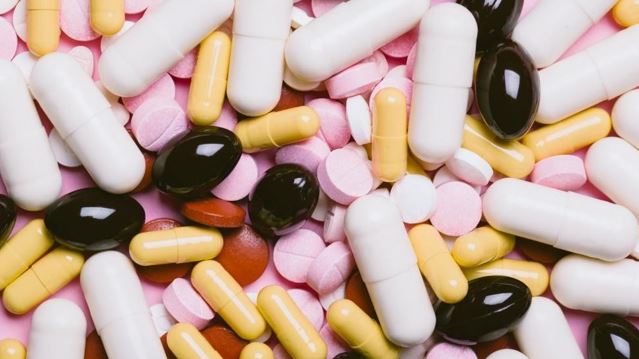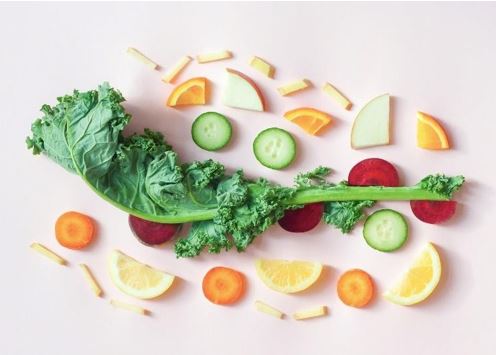
Taking folic acid when planning a pregnancy will help your baby’s healthy growth and development.
Folic acid is a vitamin (B9). It is found in certain foods and it can also be taken as tablets.If you’re planning to want have a baby, it’s important that you take folic acid tablets for two to three months before you conceive. This allows it to build up in your body to the point where it protects your future baby from neural tube defects like spina bifida.
As you could get pregnant within a month of trying, it's best to start taking folic acid tablets two months before you stop using contraception. If you've already stopped using contraception, that's okay; just start using it now and continue until the 12th week of pregnancy.

You can also try to eat foods that contain folate, which is the natural form of folic acid. However, even a healthy and balanced diet does not have enough folic acid for pregnancy so taking folic acid supplement is very important.
If you end up taking folic acid tablets for far longer than two to three months this is absolutely fine and not harmful
If you have the right amount of folic acid in your body before being pregnant, it reduces the risk of the baby developing neural tube abnormalities by up to 70%. Neural tube defects are problems with the brain or spinal cord, or spina bifida.
Spina bifida is not common but it can cause a wide range of issues for the baby, including:
When trying to conceive, doctors may suggest a different thing to help optimize your health and taking vitamins and supplements is obviously on the list. Certain supplements taken on a daily basis may help in the conception of a baby in a variety of ways, including improving the general quality of a woman's eggs and a man's sperm, as well as the overall health of a woman's pregnancy.

Below, is a list of a few important vitamins and supplements to consider taking when you’re trying to conceive. Many of your daily vitamins and minerals should come from food. Supplements are an excellent complement to your diet if you're having problems receiving all of the required daily amounts from food.
Taking these vitamins and supplements can be beneficial for you before conception, during the pregnancy, and afterward. It’s important to speak with your doctor about which supplements are best for you and how they can help you conceive and have a good pregnancy. Maintaining a good balance of these vitamins will help you not just with your fertility, but also with your general health.
If you're trying to get pregnant, is your diet packed with foods that increase your fertility? Unlike other non-controllable factors like age and genetics, eating certain foods and avoiding others can help you improve your ovulatory function.

For a fertility diet to improve egg quality, load your plate with fruit and veggies.
Healthy, plant-based fats should be consumed in moderation. Nuts, avocados, olive oil, and grapeseed oil all help to reduce inflammation in the body, which aids in regular ovulation and overall fertility. Some healthy fats may even help women who are struggle infertility.
Reduce your intake of trans fats and increase your intake of healthy unsaturated fats. Trans fats, which are mostly found in commercial baked and snack foods, animal products, French fries, and some margarines, increase insulin resistance. Insulin helps glucose transport from the bloodstream to the cells; resistance makes glucose transport more difficult.
Fish is a better source of protein than red meat. Protein, zinc, and iron are all important building blocks for a healthy pregnancy, so trim the fat from chicken, turkey, pork, and beef.
Consume one or two servings of whole milk or other full-fat dairy foods (such as yogurt) per day, rather than non- or low-fat dairy.
A Healthy Start Includes Avoiding Bad Foods for Fertility. When it comes to planning a baby and trying to conceive, the key is to avoid the bad foods that effect fertility. Your diet plays an important role in a successful conception. A careful diet may not only help you conceive but also make sure that your baby gets a healthy beginning!

One of the bad foods for fertility you need to avoid for a successful conception is saturated trans fats. Foods that contain trans fats increase inflammation and make it difficult to maintain a healthy weight.
The solution is to go for sources of monounsaturated fats those found in nuts, avocado, avocado oil, and olive oil.
Make sure to avoid baked products like pastries, cakes, biscuits, candies, fast food, and chips if you are trying to conceive. Put them on your list to avoid bad foods for fertility.
When it comes to carbs and fertility, the type of carbs you eat has a direct impact on your ability to conceive. High-processed carbohydrates that have had their fiber and other essential nutrients removed are known as refined carbs.
They increase the risk of medical problems such as insulin resistance and blood sugar imbalances because they lack fiber
Soda, sugar-sweetened soft drinks, and energy drinks are all known to have a negative impact on fertility. Artificial sweeteners are considered one of the fertility-harming foods.
Bacon, beef, sausage, and hot dogs, as well as other red and highly processed meats, may have a negative impact on fertility. Saturated and trans fats are likely to be high in such meats, which may contribute to lower fertility.
Large amounts of animal protein may also make it more difficult to conceive. Women who prefer vegetable protein are less likely to experience ovulation problems and have lower infertility rates.
Ovulation and the regularity of your menstrual cycle are both affected by alcohol. It also affects reproductive hormones like testosterone, estradiol, and luteinizing hormone (LH). These could be some of the reasons why alcohol has a negative impact on fertility. So, if you're thinking about having a baby, make sure you limit your alcohol consumption.
Too much sugar is not recommended when you want to conceive. A diet high in added sugar increases the risk of many health problems, including Type 2 diabetes. Make sure to avoid sugary foods.
A coffee or an energy drink might provide a pick-me-up, but caffeine consumption has been linked to an increased risk of miscarriage and having a low birth weight baby.
While you don't have to avoid cheese during pregnancy or when trying to conceive, you should avoid unpasteurized soft cheese. Any type of cheese made with unpasteurized milk or ripened with mold is likely to contain bacteria that can effect fertility.
Low-fat diets may appear to be a good way to lose weight. Skim milk or low-fat milk, on the other hand, may have a negative impact on a woman's fertility. In some women, regular consumption of low-fat dairy products has been linked to an ovulatory infertility (problems with egg growth and release).